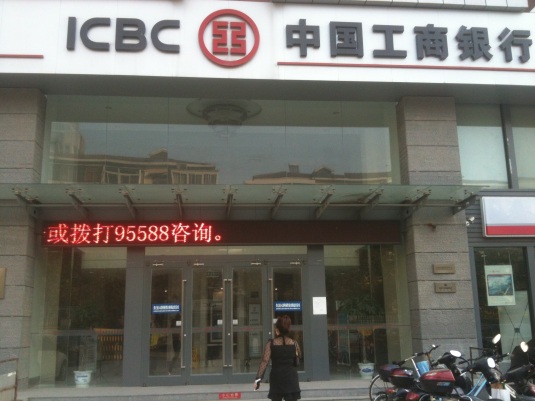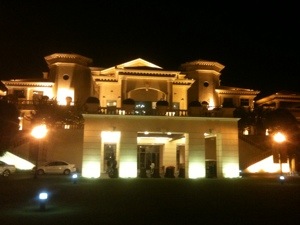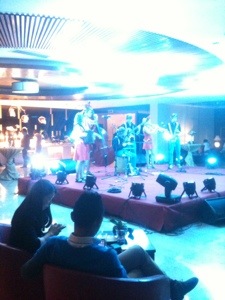Hey guys,
So when I first arrived in China I made a blog post entitled “Don’t Ask…” and referenced the laundry system in the hotel building. I made some witty remarks about seemingly having to fight for every scrap of information as nothing is offered freely and left it at that.
Well, be amazed as I return to you with Part 2 of “Don’t Ask..”
I first decided to open a bank account after realising that my Visa card from Australia was smacking me with a $15.00 fee every time I withdrew money. I had also discovered that shops here do not accept Visa cards which are not affiliated with a Chinese bank and don’t even try to purchase anything online without a local bankcard.
I love a good challenge, and what better challenge than dealing with a bank in your second language.
With my trusty PLECO dictionary app., I managed to open an account with ICBC and set-up internet banking. “Easy” I thought gleefully to myself “Online transaction here I come!”
But alas, on arrival home I was unable to download the online banking program to use the ‘USB password-thingy’ they gave me…because my Internet was too updated. Is that even a thing? Apparently I was running Firefox 11.2, which was incompatible with their software which required Firefox 8.
Ok, China.
Regardless, the instructions were all in Chinese and I didn’t want to muck around with it.
So, making a plea to my parents back home I got them to send through money from my Australian account to China via Western Union.
The money was taken from the Australian account. One week…Two weeks…nearly three weeks later, still no money on my card. I was panicking, imagining all sorts of horrific circumstances akin to a package that had recently been lost in transit to China from home.
Western Union had sent the money, they had done their part, so that meant there was trouble on my end.
Not even bothering with PLECO dictionary this time, I strode into the bank and spoke loudly in broken Chinese, ‘My money is gone-what-the-hell-you-gonna-do-about-it.”
A friendly woman scurried out and asked me a few questions, got me to demonstrate to her that the card was indeed empty. She then took me into a quiet back room where there sat rows of bespectacled men, all stamping piles of paper with red, rubber stamps. One guy was even wearing a waist coat. It was strangely reminiscent of a movie I once saw which was set in 19th Century London.
The friendly woman handed the card to one man sitting at the end of the line and whispered something so him. With a nod, he ceased stamping and turned instead to a pile of seemingly random papers. Slowly he shuffled through the pile, mumbling things to himself and continuing to ignore me.
Finally, he pulled out a piece of paper from the bottom and showed it to me with a flourish. “McCall” it had written on it, I nodded.”You needed to come pick this up weeks ago” he said, and glared at me accusingly. “I…have…to pick up?’ My language degenerated due to disbelief. He nodded. “Everytime I transfer… need to pick up?” Again, a nod. Why didn’t they tell me this when I first opened the account? When I get called a 外国人 (waiguoren: foreigner) on a daily basis I assume it’s because people recognise that I’m not from around here.
The man put the money on my card, I thanked him and turned to walk away. The voice in my head, recalling my laundry experience, told me to stop and think. I then asked him: “Is that everything? I can withdraw money now?”
Turned out that I still needed to go to the second floor of the bank to get my money, which was in USD, transferred into RMB before it was actually useable.
Don’t ask…
(FINAL NOTE: I would actually advise everyone to organise a secure form of money whilst still in their home country. Get a Visa, make it Internationally enabled to rid you of a whopping fee. Travellers cheques are also a good secondary option. Then, if you do decide that you want a Chinese bank account to make your life here that much easier, it is a simple process of opening the account and withdrawing the cash to deposit immediately. Please be aware that there was no one in this bank who could speak English, therefore a dictionary or a translator are crucial if you don’t speak the language well, also it is possible to arrange a consultation with an English staff member in advance. I also know that some larger banks in different countries have partner banks, so check if your bank has a Chinese partner as both banks can advise you about dealings and processes of the other. )
Peace out!







